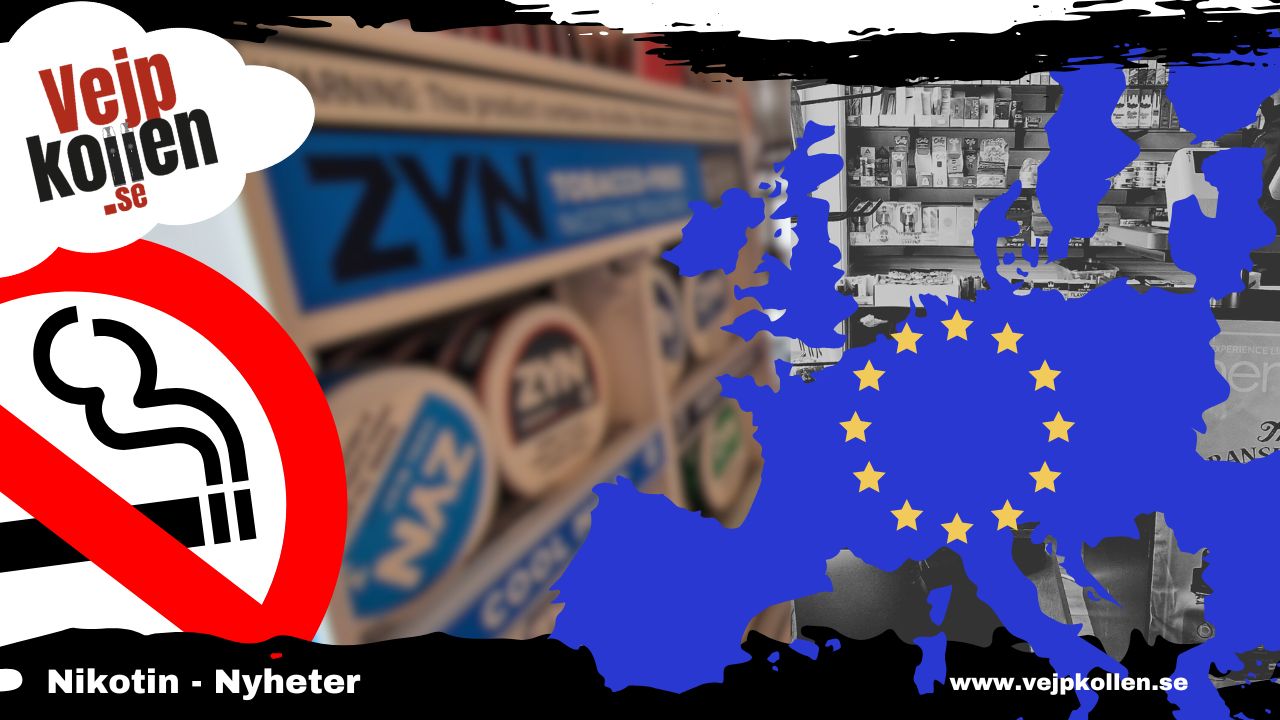The Swedish government is taking action to protect the future of nicotine pouches in Europe. This is clear after the government chose to criticise in the strongest possible way Spain's request to force the nicotine content of pouches down to 0.99 mg per pouch. In practice, this means a ban, according to the government.
“Nikotinpåsar är inga hälsoprodukter, och det är därför vi i Sverige har reglerat dem. Men i ett läge där rökning är tillåtet borde också nikotinpåsar vara tillåtna” säger utrikeshandelsminiister Benjamin Dousa.
Flera länder inom EU planerar eller har redan infört restriktioner för nikotinportioner. Vissa länder, som Germany, The Netherlands and Belgium har förbjudit all försäljning (men tillåter privatimport). France vill göra likadant.
Men så finns det länder som gör lite annorlunda. I Spanien vill regeringen reglera påsarna till vad många skulle kalla oigenkännlighet. Precis som kommande lagstifting i Danmark ska endast artificiell tobakssmak ska vara tillåten. Till skillnad från Danmarks föreslagna begränsning på 9 mg per gram vill Spanien dra ner till lägre än 1 mg per påse, 0,99 mg.
"Hindering free movement"
Även om få mäter på det sättet (olika märken har olika stora påsar och nikotinmängden mäts per gram) så innebär det Spanska förslaget en såpass kraftig begränsning att svenska regeringen nu sätter ner foten. Nikotinportioner är ju trots allt en produkt som i stor utsträckning tillverkas och exporteras av svenska företag. Begränsningen anses helt enkelt påverka svenska intressen.
"The Spanish proposal sets a ceiling that effectively excludes all the products concerned from the market. This is an intrusive measure that hinders free movement in the EU internal market. It may be a prohibited measure under the EU Treaty." the government writes.
Many smokers in Spain
Regeringen påpekar att bruket av nikotinportioner och snus i Sverige har haft effekt på hur befolkningen använder nikotin. Andelen rökare i Sverige ligger på 5,6 procent jämfört med 22,3 procent som är snittet i unionen. Närmare 20 procent av svenska befolkningen använder däremot snus, nikotinportioner och e-cigaretter.
I Spanien röker idag 23 procent av befolkningen som är över 14 år, enligt Eurobarometer.
"Cigarettes and smoking tobacco pose a greater health risk than smokeless tobacco and nicotine products. According to the OECD, smoking is the single most important cause of most diseases, including some cancers, heart attacks and strokes. Lung cancer is the leading cause of cancer mortality and smoking is the leading risk factor for lung cancer. Therefore, to the extent that snus replaces cigarette consumption, it is considered a positive development from a health perspective." writes the government.
Concerns about addiction instead of cancer
According to Spain, the restriction on nicotine pouches is justified by similar arguments. But in the opposite direction. The focus is not on cancer and other diseases, but on nicotine and its addictive properties. Concerns about the popularity of nicotine pouches among young people are high, not only in Spain but also in other EU countries. But according to the Swedish government, there must be proportionality in the regulation. In Sweden, for example, nicotine pouches are regulated through age limits, marketing restrictions and taxes. A patch ban is also on the table for future legislation.
"In its notification, Spain has not explained why other, less restrictive measures could not be sufficient and proportionate in relation to the objective pursued by the regulation," the Government writes.
Unusually strong statement
The detailed opinion that the government has now provided is a sharper form of reaction that the Directive allows to be given to other Member States' legislative proposals, as opposed to merely providing a comment. A Member State that receives a detailed opinion must reply to the comments and set out the measures it intends to take to remove the obstacle caused by the regulation.
"Not a health product"
According to Benjamin Dousa, Sweden's Minister for Foreign Trade, the government wants to show that it stands up for Swedish snus and nicotine pouches through its statement.
"We want to send a signal to the rest of the EU countries that we will stand up for Swedish snus users. White snus is not a health product. But in a situation where smoking is allowed, white snus should also be allowed," says Benjamin Dousa, to Expressen.




